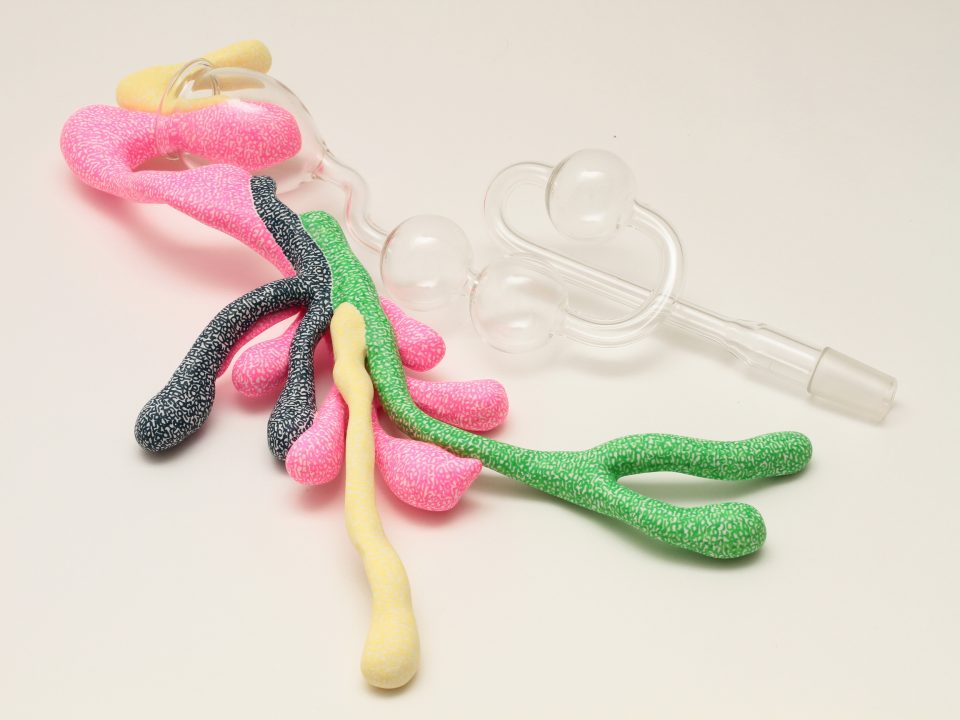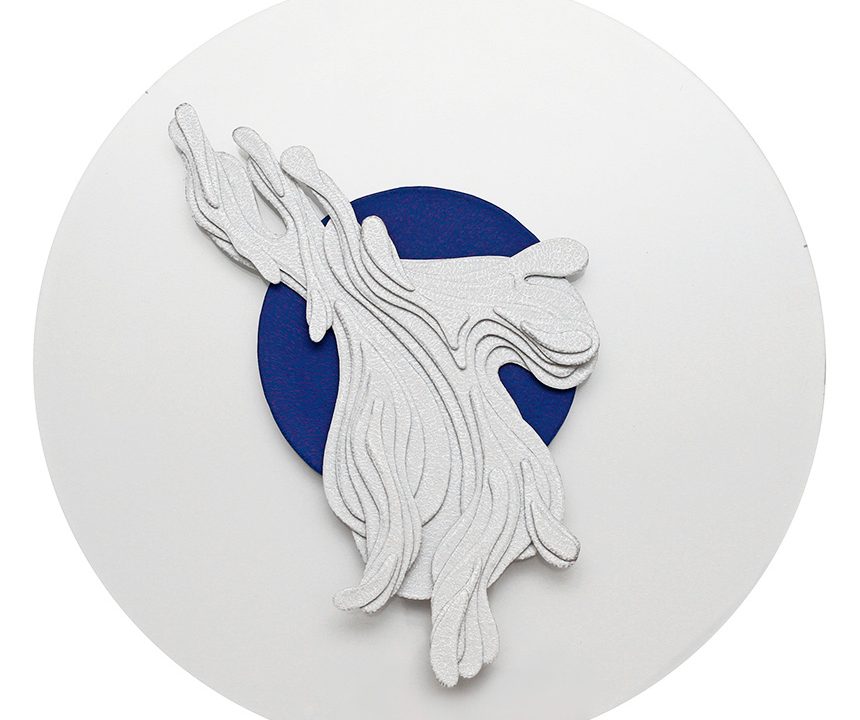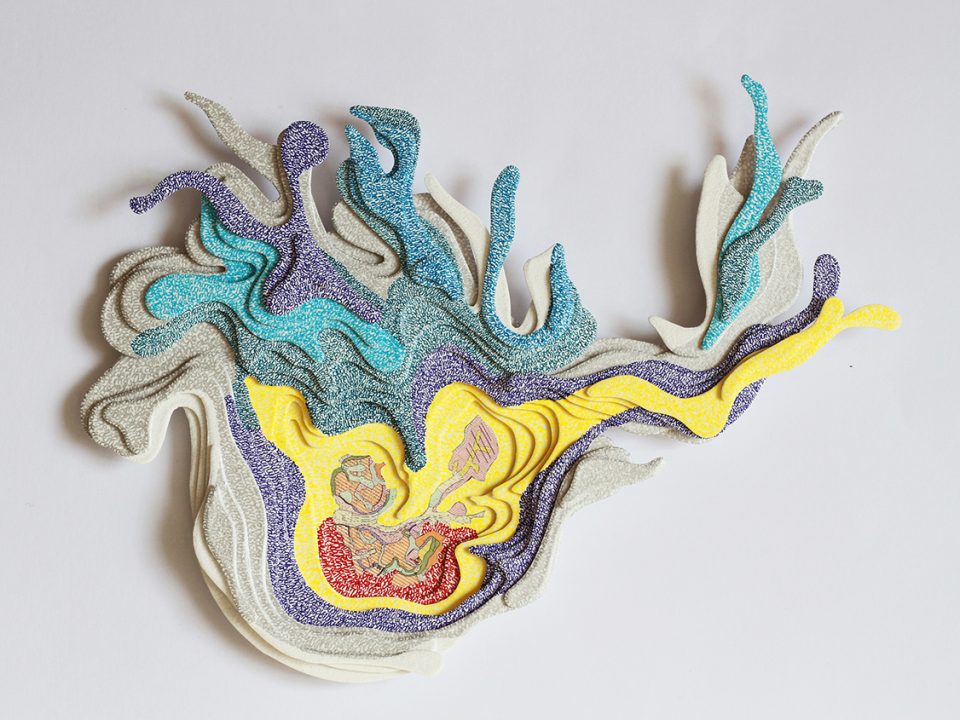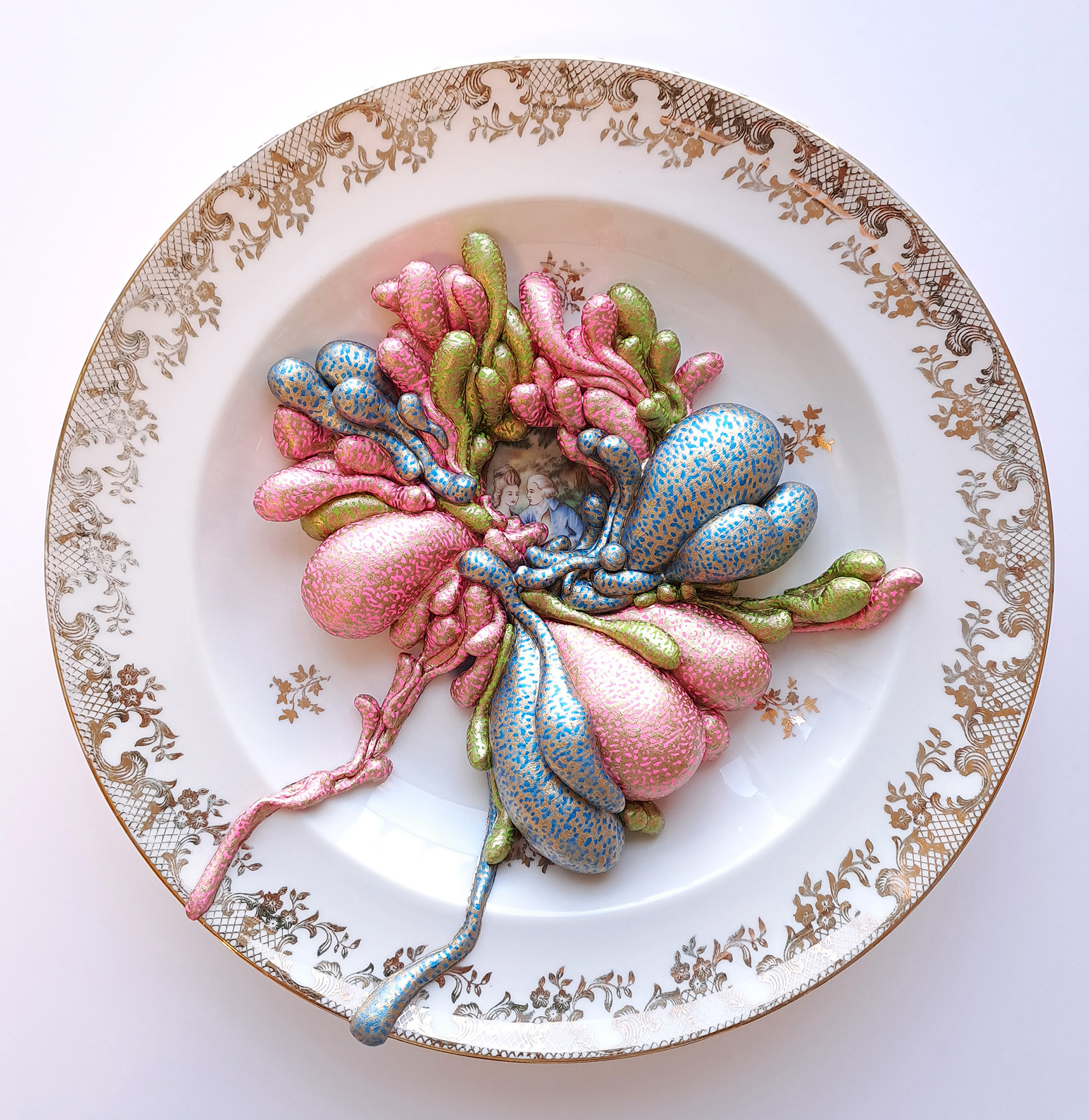
Transfonges n.05
Mixed media: Limoges porcelain, polymer clay, bronze and acrylic painting.
Dim: 23 cm Ø x 3 cm
2024
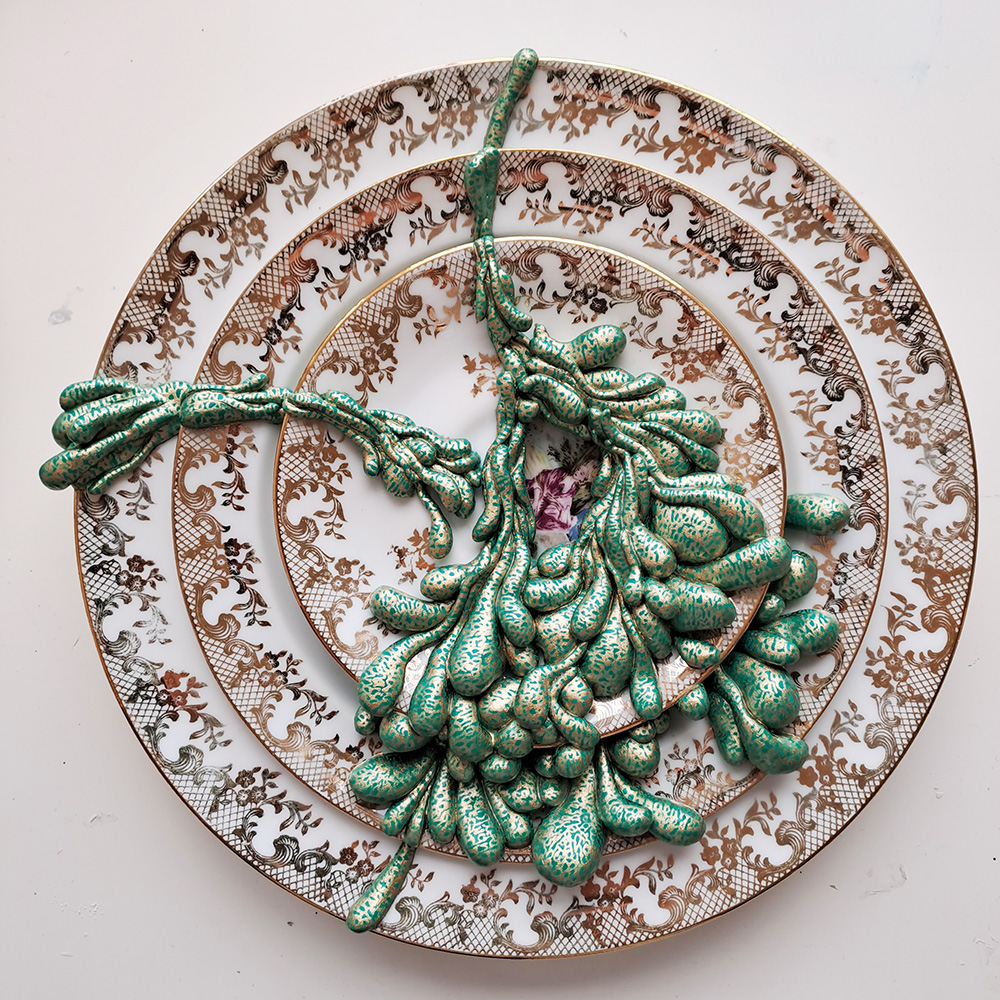
Transfonges n.02
Mixed media: Limoges porcelain, polymer clay, bronze and acrylic painting.
Dim: 23 cm Ø x 3 cm, 2024
Private collection
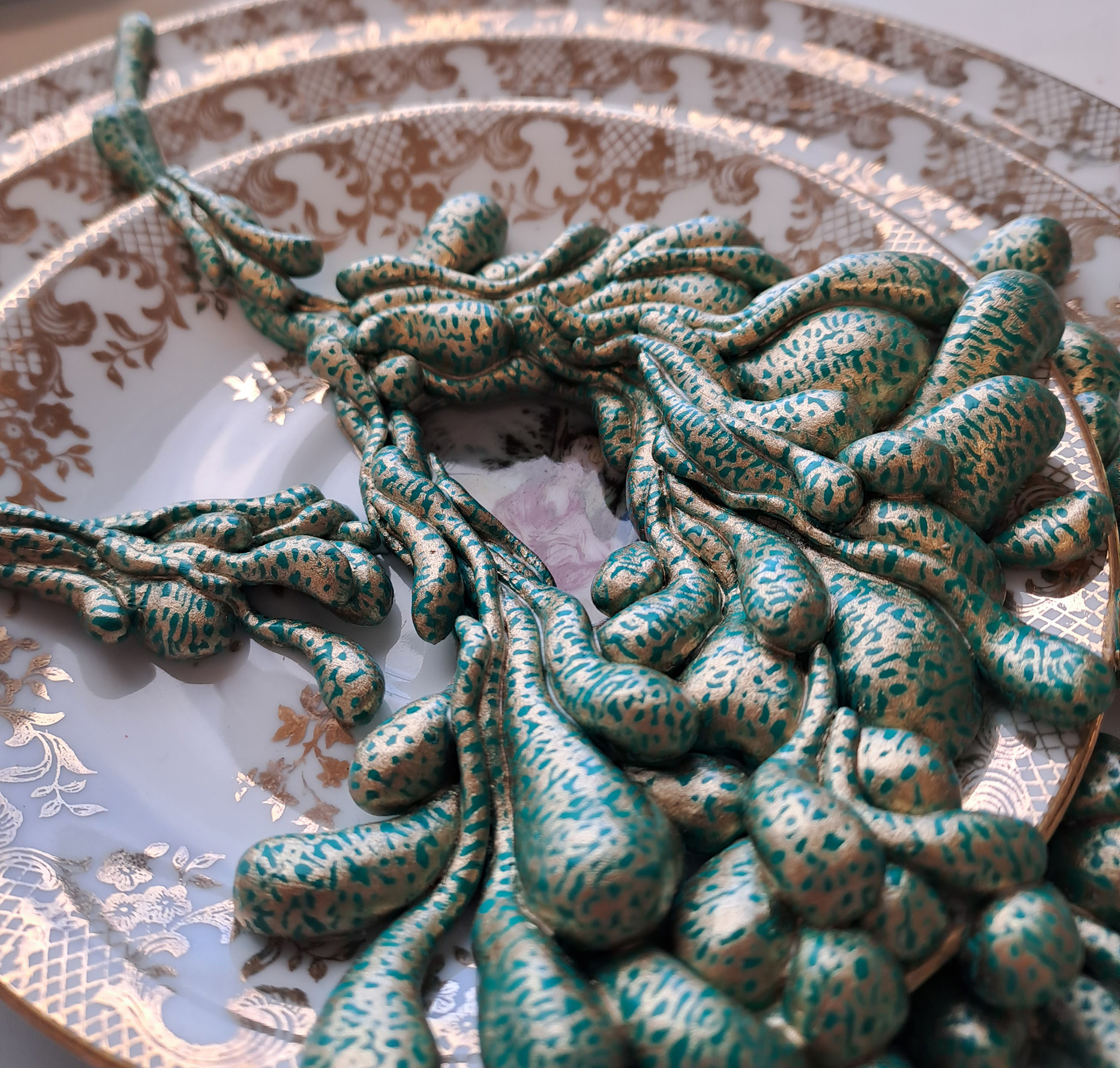
Transfonges n.02 (detail)
Mixed media: Limoges porcelain, polymer clay, bronze and acrylic painting.
Dim: 23 cm Ø x 3 cm, 2024
Private collection
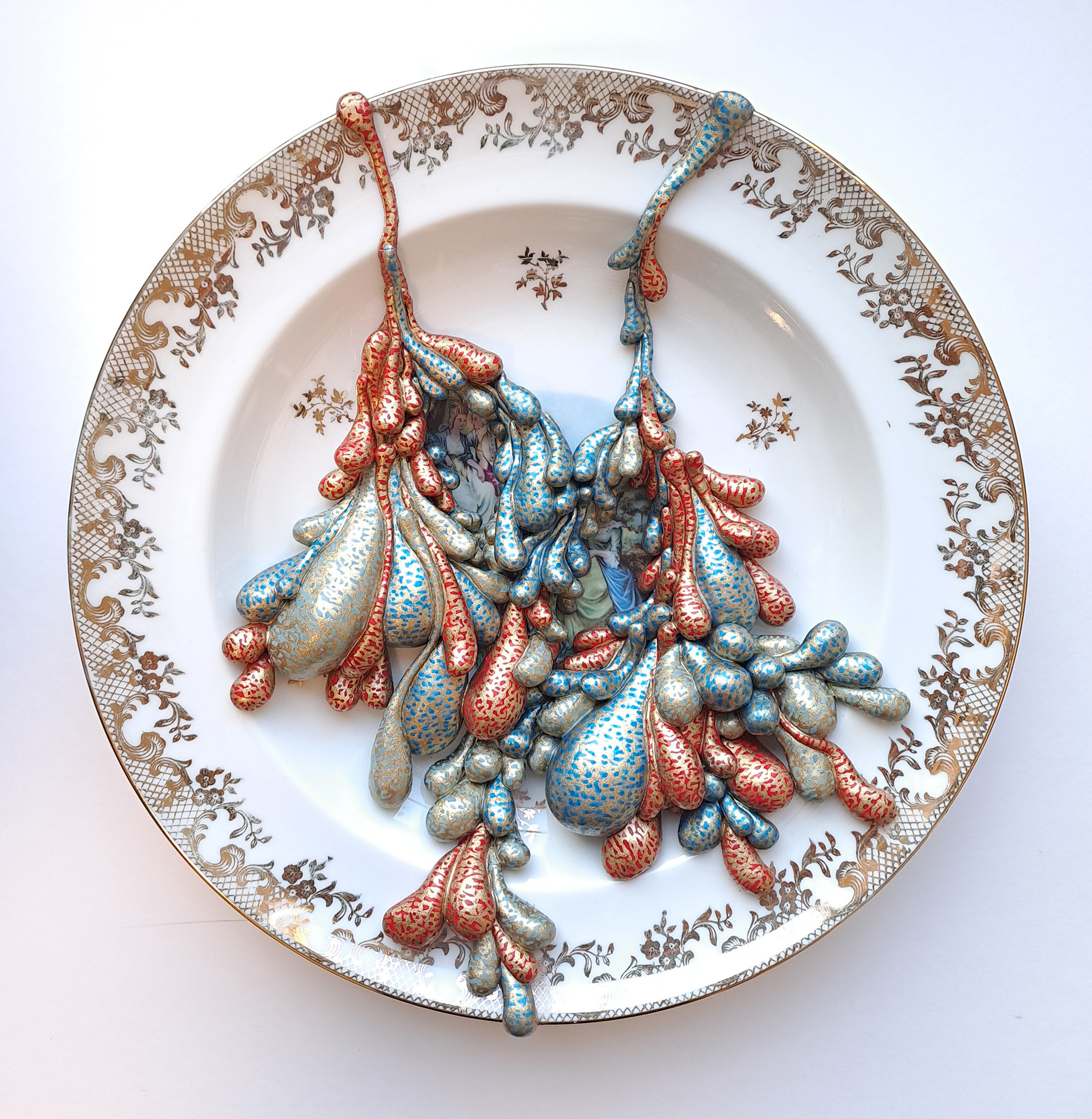
Transfonges n.06
Mixed media: Limoges porcelain, polymer clay, bronze and acrylic painting.
Dim: 23 cm Ø x 3 cm
2024
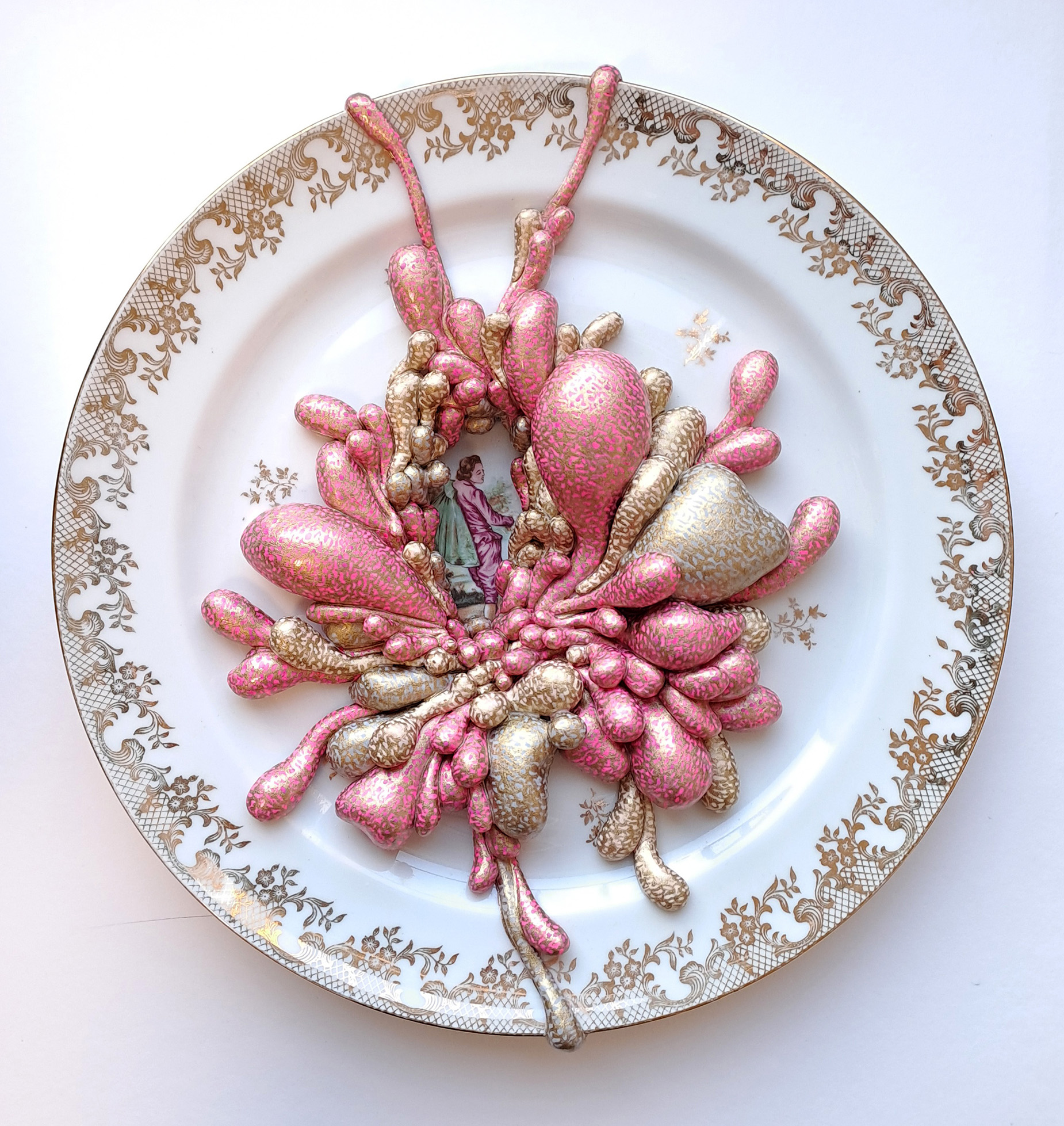
Transfonges n.08
Mixed media: Limoges porcelain, polymer clay, bronze and acrylic painting.
Dim: 23 cm Ø x 3 cm
2024
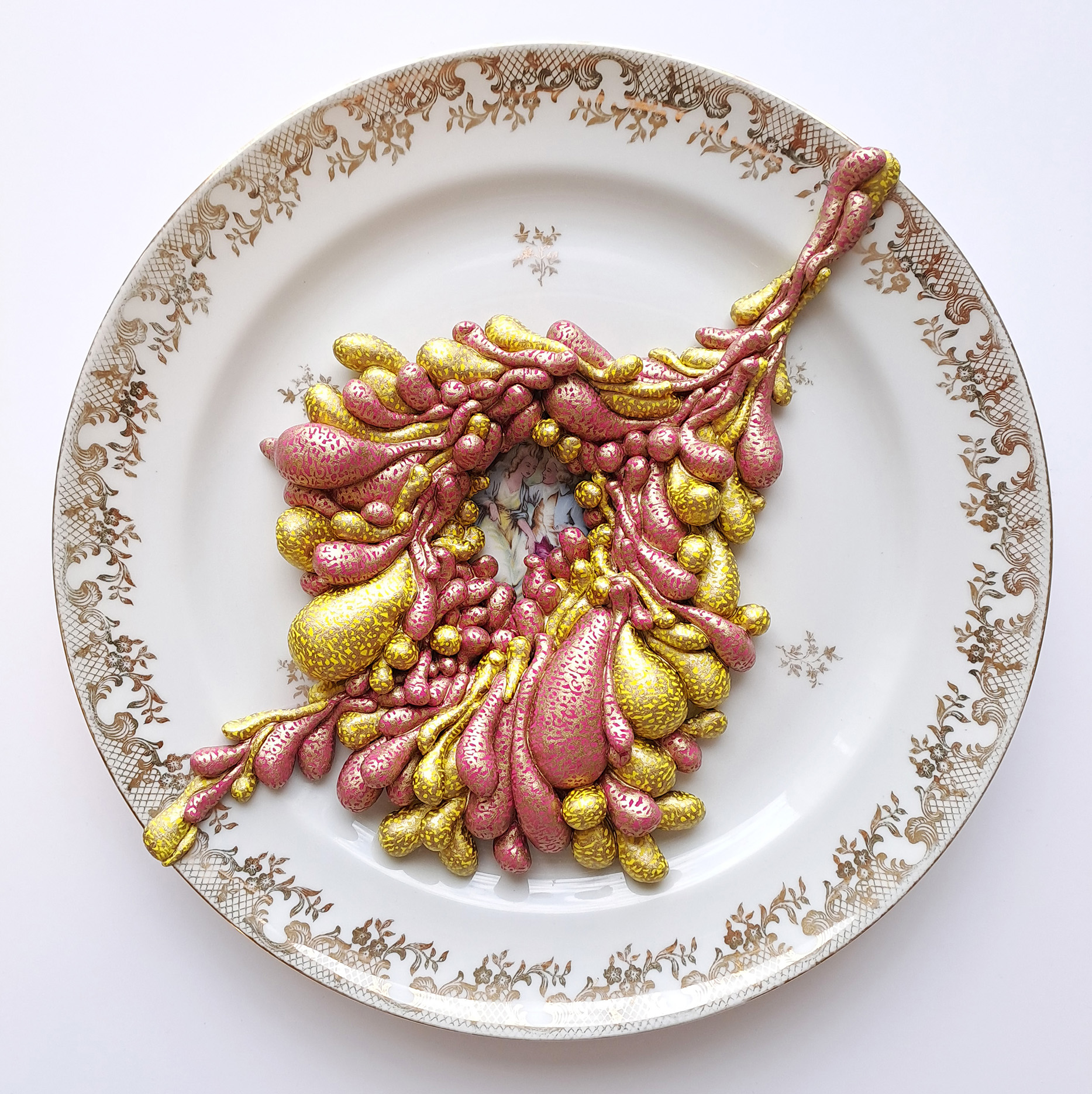
Transfonges n.04
Mixed media: Limoges porcelain, polymer clay, bronze and acrylic painting.
Dim: 25 cm Ø x 3 cm
2024
The Transfonges series brings together elements from three intertwined cultures that compose my journey and visual narrative: the Portuguese language through the poems of Fernando Pessoa (Lisbon 1888 - 1935), transcribed over the entire surface of the polymer clay sculptures; French porcelain from Limoges, idealising landscapes and bucolic imagery; and the Japanese tradition of kintsugi, an important symbolism in the reconstruction of everything that is finished.
Transfonges - 'fonges' from the plural of fungi and also an allusion to 'transfuge de classe' - are like multicellular yet synthetic specimens that contradict their origins, occupying the noble and rigid ground of porcelain to proliferate as miscegenated structures.
They are "word-fungi" that germinate between the lines, developing haphazardly, without proximity to the maternal culture or the culture of adoption. They flourish as felt and lived evidence in the conditions imposed on those who have long been grafted without defined roots; and they reproduce like creole organisms, recomposing the shattered past into a new symbolic ideal.
Countless lives inhabit us.
I don’t know, when I think or feel,
Who it is that thinks or feels.
I am merely the place
Where things are thought or felt.
I have more than just one soul.
There are more I’s than I myself.
I exist, nevertheless,
Indifferent to them all.
I silence them: I speak.
The crossing urges of what
I feel or do not feel
Struggle in who I am, but I
Ignore them. They dictate nothing
To the I I know: I write.
Fernando Pessoa © Translation: 1998, Richard Zenith
_______________________________
A série Transfonges, traz elementos de três culturas entrelaçadas que compõem o meu percurso e minha narrativa visual: a língua portuguesa através dos poemas de Fernando Pessoa, transcritos em toda a superfície das esculturas produzidas em argila polimérica; as porcelanas francesas de Limoges idealizando paisagens e o imaginário bucólico; e a tradição japonesa do Kintsugi, simbologia maior na reconstrução de tudo que é findo.
Transfonges - fonges do plural de fungi e também alusão à transfuge de classe -, são como espécimens pluricelulares porém sintéticos, que contrariam suas origens e ocupam o solo nobre e rígido da porcelana para se proliferarem como estruturas miscigenadas.
São fungos-palavras que germinam nas entrelinhas, desenvolvendo-se desordenadamente sem proximidade com a cultura materna tampouco com a cultura de adoção. Florescem como evidência sentida e vivida em condições impostas àqueles que estão há muito tempo enxertados e sem raízes definidas; e se reproduzem como organismos crioulos recompondo o passado estilhaçado em um novo ideal simbólico.
Vivem em nós inúmeros;
Vivem em nós inúmeros;
Se penso ou sinto, ignoro
Quem é que pensa ou sente.
Sou somente o lugar
Onde se sente ou pensa.
Tenho mais almas que uma.
Há mais eus do que eu mesmo.
Existo todavia
Indiferente a todos.
Faço-os calar: eu falo.
Os impulsos cruzados
Do que sinto ou não sinto
Disputam em quem sou.
Ignoro-os. Nada ditam
A quem me sei: eu escrevo.
Poemas de Ricardo Reis. Fernando Pessoa. 13-11-1935 (Edição Crítica de Luiz Fagundes Duarte.)
Lisboa: Imprensa Nacional - Casa da Moeda, 1994. - 182.


